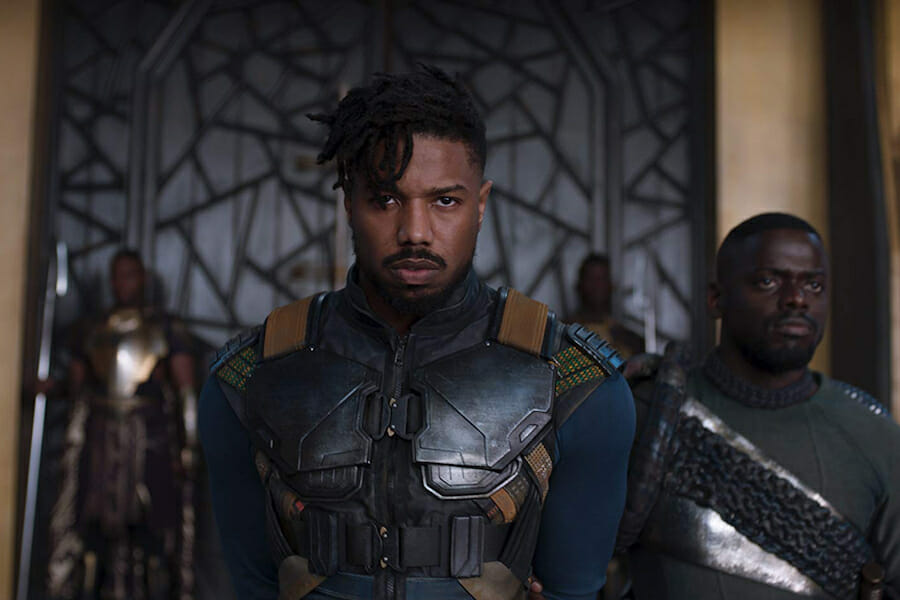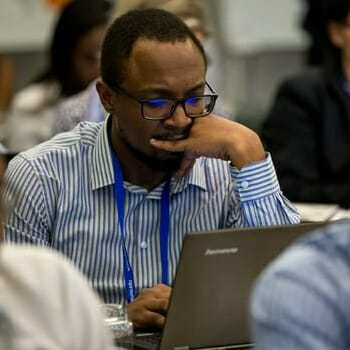
Toxic Politics of ‘Black Panther’
First, I loved the movie as a movie. I actually saw it twice. Most super-hero fantasy movies typically feel like the figment of someone’s imagination. With this movie though, many things felt strangely familiar: the language, accents, ceremonies, fashion, and so on. The story was okay too, although at some point I was able to predict the plot before it happened…No game of thrones style surprises there.
If I told you there’s an island of prosperity surrounded by a sea of poverty in Africa, where a narrow elite have managed to corner the benefits from a natural resource, and use those benefits to perpetuate their rule while at the same time promoting policies that keep the rest of the sea in poverty, where would you guess that is? Is that place Wakanda? Yes, it is, but it is also very many current African countries. It is Nigeria, where you are only a five-minute drive away from either the plush green streets of Maitama or the chaos in Nyanya. It is Kano, with its fancy emirate palace and its plush libraries and Rolls Royces, a stone throw from communities with some of the world’s worst maternal mortality statistics. It is Sierra Leone or Equatorial Guinea…It is basically many resource driven African economies where islands of prosperity and opulence exist surrounded by immense poverty. Wakanda is perhaps the clearest example of the typical dictator’s vision for Africa: the greatest country in the world, but only if you ignore all the poor people in the rural periphery. To be fair, most African countries reject that vision, and many have made strides towards more equal societies, at least since the democratic movements in the 90s.
Which brings us to the first toxic idea: which is that wealth and progress is built on natural resources and that those resources should be “protected” from outsiders. It might seem trivial, but that idea is a very big problem in the African policy space. If I had one naira for every time I heard the phrase “Africa is rich in natural resources, so why are we so poor,” typically followed by “It’s because the white man came and took our resources,” I would be a rich man. OK, maybe not so rich, given that we are talking about naira… The idea that wealth and progress is built on natural resources is a toxic idea that seems to get repeated over and over again, and which frankly leads to a lot of misguided polices focusing on exploiting and nationalizing resources. I know the movie tries to hype up the technological innovations and all that, but it never fails to mention that everything is built on vibranium. It’s ironic that a large chunk of the movie is shot in Busan, a city with absolutely no natural resources. To be clear, wealth is built on knowledge and hard work. Historically, resources haven’t mattered much.
The idea of natural resources that need to be protected leads nicely to the second toxic idea. I died a bit inside when the narrator said, “Wakanda does not engage in international trade.” It might also seem trivial, but almost every day, there is some politician championing the idea that trade is bad, and thus countries should try to be self-sufficient. Unfortunately, trade is a fundamental part of economic development and no country has developed without trading. Even North Korea, with its infamous juche economics, still trades with the outside world.
Why does Wakanda not engage in international trade? It seems to be something about protecting their way of life. Sounds awfully familiar like the reasons given by colonialists in Northern Nigeria for not promoting education in the region. Also ironic is that Wakanda does not engage in international trade, but there were “those American movies that Baba used to watch” and the elite can hop over to Korea for a game of cards whenever they like. It might seem like a Freudian slip, but a president once chided the citizens of his country for importing fancy dresses and patronizing foreign hospitals, shortly before proceeding on a three-month medical vacation in London. I won’t name names. Self-sufficiency rarely applies to the elites and those in power.
Speaking of elites, the last toxic thing in Black Panther was the politics. Wakanda is essentially an absolute monarchy, perpetuating the idea that leadership is hereditary. Only people from the royal family can challenge leadership. Essentially, in Wakanda not all people are equal and that’s just not something I can agree with. I’m not going to assume there was nepotism in the king’s sister being in charge of what seems like the most important government agency.
The really sad part about the politics was how similar it was to real world African politics, and perhaps politics outside Africa, too. The rules for political authority only seem to apply when the elites like the outcomes. Once an outcome that the elite don’t like occurs, they would rather burn everything down than allow a political transition. Killmonger had every right to challenge for the throne and did win it. However, once he won, a fraction of the elite immediately plotted to overthrow him, eventually plunging the country into a civil war. In other words, the rules only applied because they liked the outcomes, and they would rather the country burn than accept an outcome they do not like. Also sounds awfully familiar. I know the plot twist happens and it turned out the challenge was not over, but all that was after the plotting. I know Killmonger had some really bad ideas, but the victors write the stories, right? I wonder what the story would have been in a parallel universe where Killmonger’s side actually won the war.
I still really enjoyed the movie. I’m just sad that it was littered with counter-productive ideas that really need to be expunged from the African consciousness.

